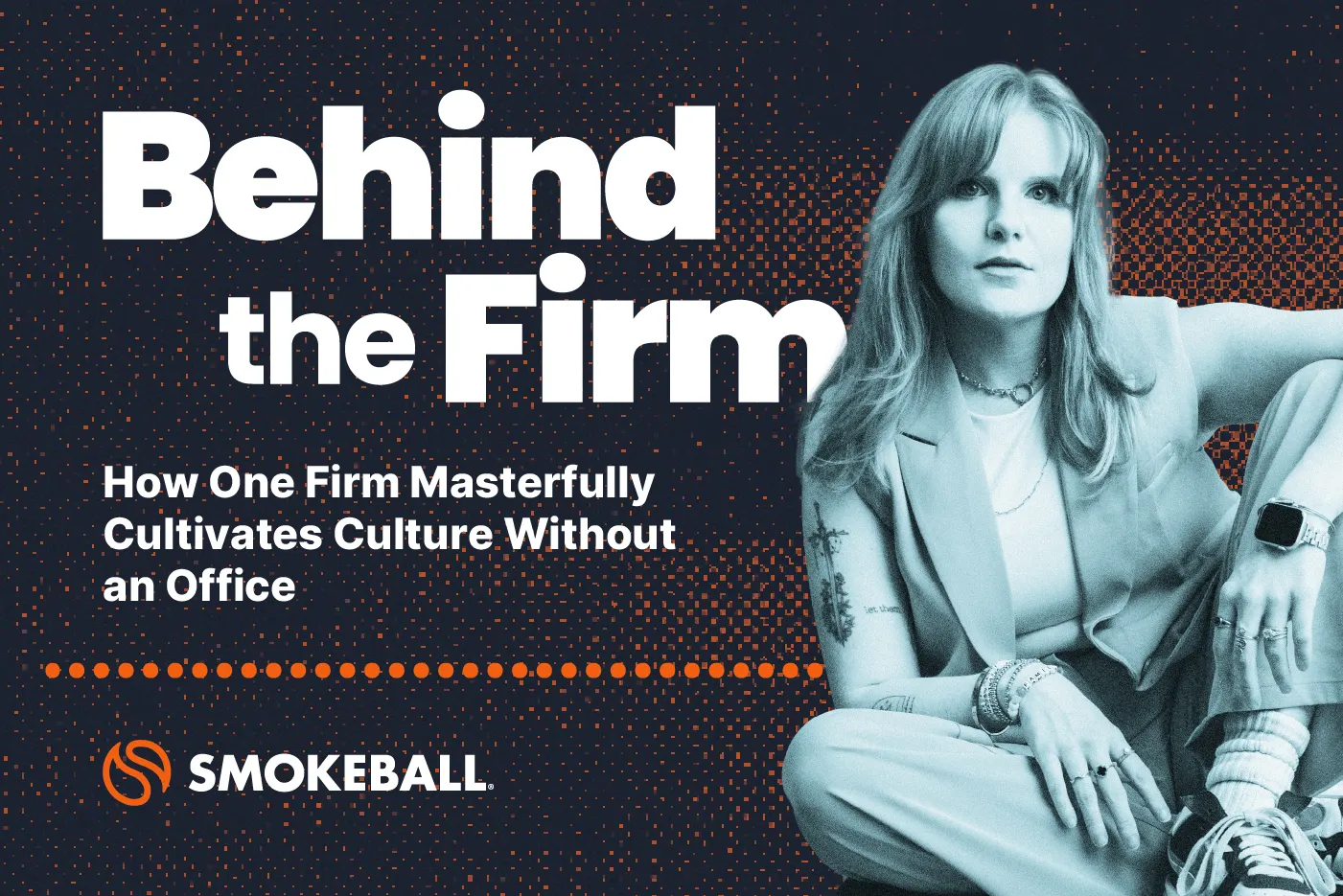Behind the Firm: How One Family Law Firm Mastered Mentorship
Written by
|
April 24, 2025
Written by Smokeball
|
April 24, 2025

Written by Jordan Turk
|
April 24, 2025

It was a Monday morning when I logged on to interview Alan Funk, a partner at respected Seattle family law firm, Wechsler Becker. Within minutes, we were easily chatting. Discussing time zones, CLEs, and how some lawyers become so iconic, you don’t even need to use their last names.
“Like Madonna,” he said, grinning. “Or Beyoncé,” I offered. In Seattle, when you talk about “Doug,” every family law attorney knows you mean Doug Becker, the firm’s recently retired and adored partner.
That quick connection set the comfortable tone for everything that followed. Because what we came to talk about was mentorship. And real, thoughtful, ongoing mentorship (especially in family law), is about connection and human experience.
This article is the first in a series of real stories by real law firms. With Alan, we’re exploring the importance of mentorship in modern law firms, why it’s so important, and how one firm is taking a hands-on approach to ensure new attorneys don’t have to stumble through the gaps alone.
In a recent survey by the Ohio Bar Association, they found 88% of members believed mentorship was essential for growth, and that less than 30% felt there was proper mentorship available to them.
At Wechsler Becker, cultivating a team was about developing not just a curriculum, but a cultural commitment to bridge the gap between law school learning and legal practice.
“Coming out of law school, we remembered, it’s pretty scary,” Alan said. “To just be suddenly a lawyer, and it still feels like you don’t really know how to do it.”
The Start of a Legal Mentorship Journey
The idea for the firm’s mentorship program took shape when they were preparing to onboard a new class of associates--smart, ambitious, and fresh off the bar exam. Doug, who is still active in Bar Association activities, used to present an annual CLE called The Nuts and Bolts of Family Law. When he put on a session for the new associates, it clicked: legal education had prepared them for exams, but not necessarily for the nitty gritty, human side of legal practice.
Working with Alan and the other firm partners, they designed a program to meet that need—a series of interactive sessions focused on the realities of day-to-day lawyering. The courses cover things like preparing for mediation, coaching clients through motions, managing local court rules, and navigating tough emotional dynamics with clients.
“In family law,” Alan noted, “we’re dealing with real people, real lives, and relationships with children. Parents might be finding out if they get to see their kids this month or not. There’s a lot at stake, and so we don’t want to throw them into the deep end without help.”
The firm partners have put a lot of effort (and as you can imagine, billable hours) into the program, and it’s important to them that it makes a splash with their team. One colleague said after the first session, “I think it went really well. By the end of the day they still seemed engaged and interested.”
And as a testimony to the need, it’s not just new associates attending. Some paralegals and support staff have expressed interest, too. The material is practical, but it's also about creating a shared language across the office, that they all felt happy to refresh on.
Law School vs. Legal Practice
I asked Alan to reflect on his time in law school, and as expected, he felt there were important portions that were left out of his learning experience. The academic side gave him a solid base, but once he stepped into practice, there was plenty more to grasp.
“I didn’t know anything about discovery,” he said of his first week as a lawyer. “I was handed a set of interrogatories to answer with a client and I had no idea what that really meant.”
So much of being an attorney depends not just on legal knowledge, but on human dynamics. Alan mentioned that in future program sessions, they’re likely to weave in more about managing difficult clients, especially in emotional cases where even a win can feel like a loss.
“There are times I’ve sat with a client who was distraught, even though we technically won,” Alan shared of learning to manage the complex emotional nature of these cases.
These comments got me questioning, how often do these learned skills play a part in the hiring process? When I asked Alan about this, he said the firm regularly uses role-play scenarios to get a feel for how candidates handle various situations. Partners often pretend to be emotional or difficult clients, watching how a potential hire responds. In one example, Alan said,
“One answer from a candidate probably should have been like, ‘Well, we’ll get into that after I learn more about your case, but I can’t really tell you whether you’ll be awarded custody or not’” Alan recalled. “But some candidates tried to give concrete answers right away. We saw that as a real sign that we needed to guide them into these skills.”
Mentorship Meets the Future: The Roll of Technology
One area the firm is always monitoring is how the evolution of tech, AI in particular, fits into mentorship and hiring going forward. Alan said that when this current batch of associates was hired, AI was still a growing term. But now, he expects it will become a bigger part of every conversation, even hiring.
“If someone told me in an interview, ‘I’m a good prompt engineer,’ I’d be interested,” he said, pondering how fast tech is changing.
The firm imagines the mentorship program expanding, and not just internally, but hopefully becoming a value that could be shared with other firms. As the program continues to roll out, they’ll consider the next steps toward helping young attorneys across many firms and locations.
We thought it would be helpful to let them know we’re your safety net, we want to invest in these young lawyers to not only keep them but also to help them learn how to be great lawyers.
For Wechsler Becker, mentorship goes beyond their courses. They try to keep an open-door policy, and associates are encouraged to problem solve themselves, but never left drowning when they hit a wall.
“We like to drive our associates to look something up first,” Alan explained, “so they can start to learn on their own, but we’re always there to help and answer questions.”
Back on that Monday morning call, between talk of programs, CLEs, and the ever-expanding role of tech, one common theme kept clear in: people. Performing as the best lawyer you can be really does include building connection, confidence, and having space to continue learning. Law firms providing mentorship to their team’s will retain talent, build a stronger practice, and ultimately improve their firm’s services.
Learn more about Smokeball document management for law firms:
Book Your Free Demo
Ready to see how Smokeball client intake software helps you Run Your Best Firm? Schedule your free demo!
















